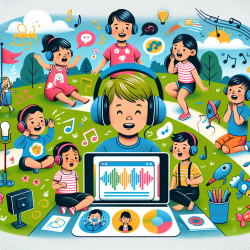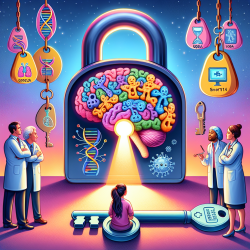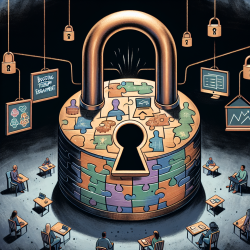Aphasia is a language disorder that affects over a million people in the United States alone. It typically results from brain injuries such as strokes, which disrupt the neural pathways responsible for language processing. Recent research has shed light on how understanding the brain's resting-state networks (RSNs) can significantly enhance therapeutic strategies for individuals with aphasia.
The Role of Resting-State Networks
The intrinsic activity of the brain, captured through resting-state functional MRI (rs-fMRI), provides valuable insights into cognitive engagement and neural health. RSNs are groups of brain regions that exhibit synchronized activity patterns even when the brain is not engaged in specific tasks. This study focuses on how these networks are affected in persons with aphasia (PWA) compared to neurologically healthy adults (NHA).
Key Findings from the Study
- Hypoconnectivity in PWA: The study reveals that PWA exhibit reduced connectivity within most RSNs, except for the visual network. This hypoconnectivity is more pronounced in left-hemispheric regions and cross-hemispheric connections.
- Compensatory Mechanisms: Despite overall reduced connectivity, PWA show stronger connections within certain areas of the semantic network, suggesting compensatory mechanisms at play.
- Aphasia Severity and Lesion Size: Connectivity tends to increase with decreasing aphasia severity and decrease with increasing lesion size. These findings highlight the importance of targeting specific neural pathways in therapy.
Implications for Therapy
The insights gained from this study have significant implications for aphasia therapy:
- Treatment Target Selection: Understanding which RSNs are affected can guide therapists in selecting specific treatment targets that promote favorable neural reorganization.
- Customized Therapy Plans: By considering individual differences in lesion size and aphasia severity, therapists can tailor interventions to optimize recovery outcomes.
- Promoting Neural Plasticity: Encouraging activities that strengthen under-connected networks may enhance overall cognitive health and support language recovery.
The Path Forward
This research underscores the potential of rs-fMRI as a tool for assessing general cognitive health in aphasia. As we continue to explore the links between brain connectivity and language function, further studies are needed to replicate these findings in larger populations and investigate the effects of targeted therapies on network connectivity.
If you're a practitioner looking to enhance your skills or explore new therapeutic avenues, consider delving deeper into this fascinating area of research. For a comprehensive understanding of these findings, you can access the original research paper here: Hypoconnectivity of Resting-State Networks in Persons with Aphasia Compared with Healthy Age-Matched Adults.










